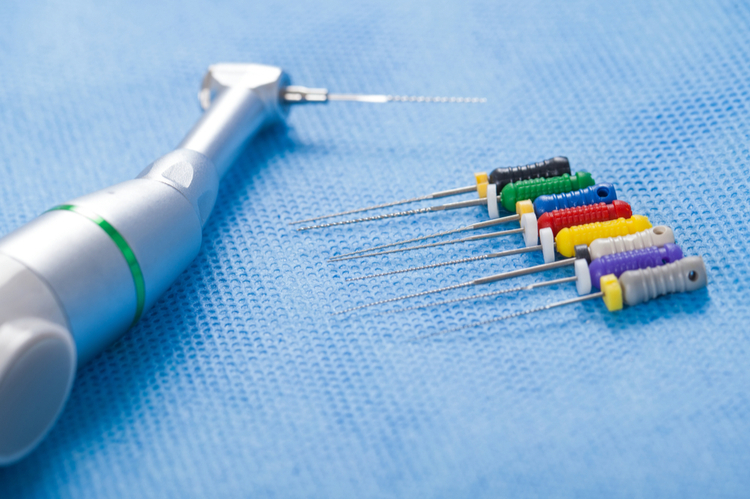Overview of root canal treatment procedure
If pulpitis is not treated early on, it can result in complications such as infection of the jaw bone, cardiovascular and pulmonary problems, among others.
The pulp is the inner part of a tooth containing blood vessels and nerves that’s responsible for providing nourishment for that tooth. The pulp can be damaged by the invasion of bacteria from tooth decay, gingivitis, or injuries. This will result in persisting pain, swelling, and infection.
Why should you receive root canal treatment?
Root canal treatment, also known as endodontic treatment, is a dental procedure used to treat the inflammation or infection of the pulp. This treatment aims to clean the root canal to remove the inflamed and infected tooth pulp.
There are 4 reasons why you should receive root canal treatment:
- To end the pain: A common symptom of pulpitis is bouts of dull pain. Root canal treatment helps manage and relieve pain. This pain will be gone after the treatment.
- To prevent tooth infection: Root canal treatment helps prevent the infection from spreading to other teeth.
- To prevent infection in other areas: If pulpitis is left untreated, bacteria will spread to the root, gums, and jaw bone. This can cause infection in other parts like the jaw bone and increase the risk of more serious conditions such as strokes and heart disease
- Save the teeth: If pulpitis is not treated, the infection can cause inflammation or tooth loss. This can lead to many other problems such as infection in other teeth, gum disease, and crossbite.
For the above reasons, see your dentist immediately if you experience the following signs of pulpitis:
- Tooth pain, especially during the night
- Tooth sensitivity to extremely hot and cold foods and drinks
- Tooth pain with chewing foods, feeling of teeth getting loose at times
- Tooth pain occurring all of a sudden or after drinking hot or cold liquids
- Prolonged pain bouts whose severity and frequency increase over time
Overview of root canal procedure

Root canal treatment is a procedure to remove all the damaged tooth pulp and seal the root canal closed to prevent the invasion of bacteria, removing infection and protecting teeth.
The procedure of a standard root canal treatment at a dental office usually include:
1. General dental examination
Initially, your dentist will examine your teeth and mouth using X-rays. If any tooth is suspected to have signs of infection, your dentist will take an X-ray on that tooth to determine the extent of the damage.
You will then be informed about your current oral state, which teeth are damaged, treatment options, and the estimated cost.
2. Administer local anesthesia
Before removing the tooth pulp, your dentist will put you under local anesthesia to reduce the pain and ensure a smooth procedure. He or she will also place a rubber dam around the tooth to separate it from the gums and oral cavity.
A rubber dam helps prevent the root canal filling and tools from entering the airway and gastrointestinal tract. Moreover, this tool keeps the area free from saliva, keeping it clean and dry.
3. Create an access hole
Your dentist will use a dental drill to create a small access hole to the root canal. This hole needs to be large enough in order for the pulp to be completely removed and the tooth to be sealed.
4. Clean out the pulp
Your dentist will use a device called manual or mechanical files to suck out the inflamed pulp and reshape the root canal. Water or sodium hypochlorite will be used periodically to wash away the debris.
To ensure that the root canal is cleaned thoroughly, your dentist will take an X-ray to measure the root length or use a machine to detect the tooth root.
They will then go the full length of the tooth through the root canal manually or using root canal files to ensure that there is no pulp tissue or bacteria left in the root canal.
5. Seal the root canal closed
After thoroughly cleaning the root canal, your dentist will seal it closed with a rubber material called cone. This material helps prevent the invasion of bacteria and recurrence of tooth infection as well as protect the tooth tissues.
Your dentist will then recheck it by visual exam and set up periodic follow-up check-ups.
After root canal, the treated tooth will have a shorter lifespan, poorer chewing ability and is more prone to breaks than normal teeth. Nonetheless, it can last for 15 to 20 years with proper care.
The aftercare of root canal treatment
The aftercare of root canal treatment aims to relieve pain, enable quick recovery, protect the tooth long-term, and prevent the infection from coming back.
- Choose your toothpaste: use toothpaste with fluoride
- Choose your toothbrush: use suitable toothbrush whose bristles are neither too hard nor too soft. Make sure to replace it regularly with a new one.
- Clean your teeth properly: brush before sleep and at least one more time during the day. Do this gently and don’t forget to clean the gaps between your teeth with dental floss.
- Have a healthy diet. Avoid sugary, hard, too hot or too cold foods and drinks. Do not smoke.
- Examine your teeth. Have a dental check-up every 6 months or immediately when there is any problem.
Effective, quick root canal treatment at The East Rose Dental
The East Rose Dental (Old Rose Dental Clinic) provides root canal treatment with the following advantages:
- Quality root canal fillings
- Your pulp will be thoroughly removed, pain minimized, and pulpitis prevented from returning
- Advanced technology, ensuring safety and good outcomes
- Dentists with extensive expertise and vast experience
- Clean facilities with sterilized tools
The earlier you receive root canal treatment, the quicker your recovery will be and the less pain you will experience. So, make sure to visit a reliable dental clinic immediately if you have any signs of pulpitis!
Services
Working Time
- Monday - Friday: 08:00 - 19:00
- Saturday: 08:00 - 18:00
- Sunday closed
Contact Info
- Hotline 1: (+84) 908 321 455
- Hotline 2: (+84) 931 857 885
- Mobile: (+84) 8 3925 8778
- Phone: (+84)2 838 258 778
- info@dentalrose.net
- rosedentalclinicvn@gmail.com
 English
English  Tiếng Việt
Tiếng Việt

